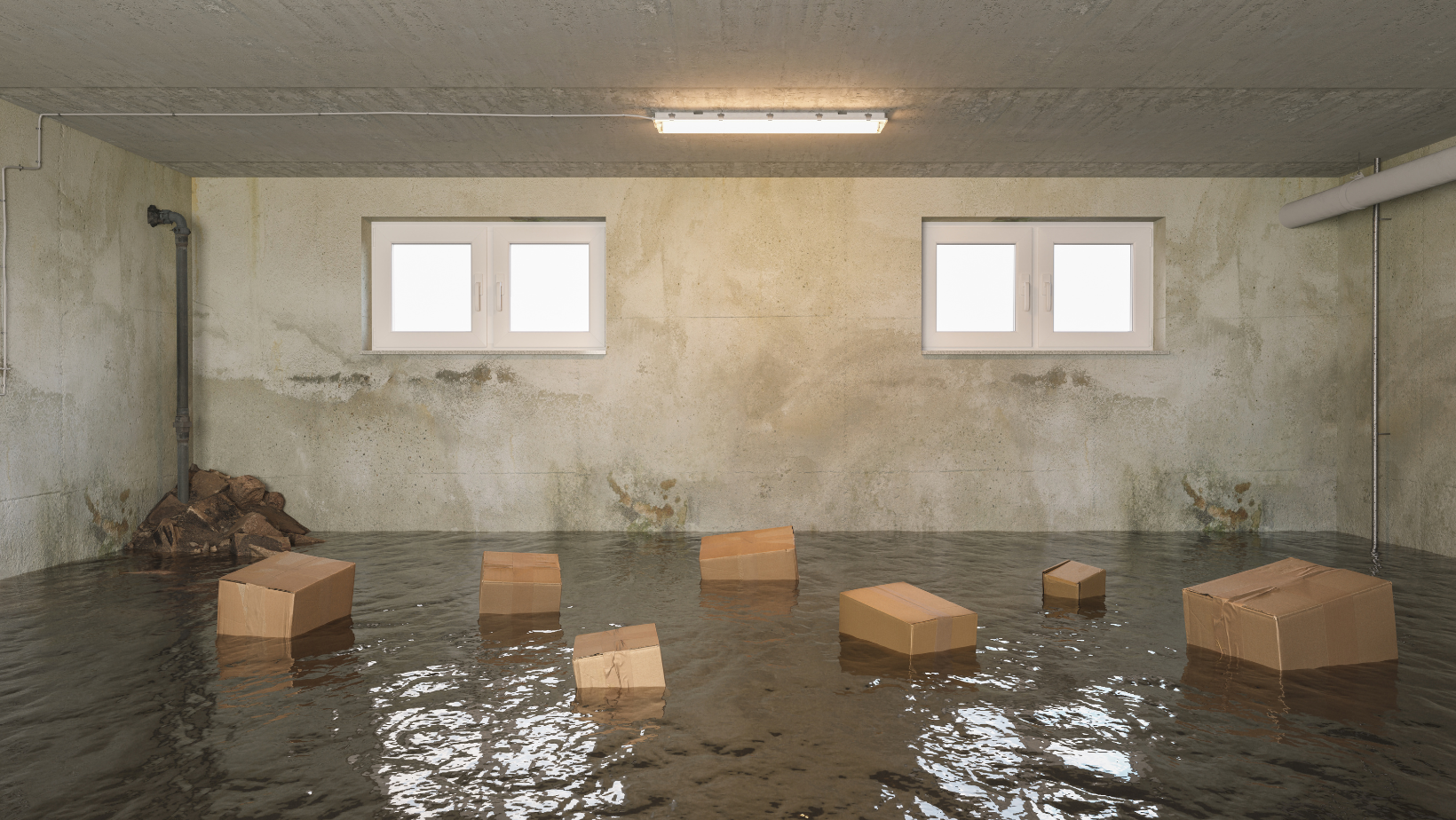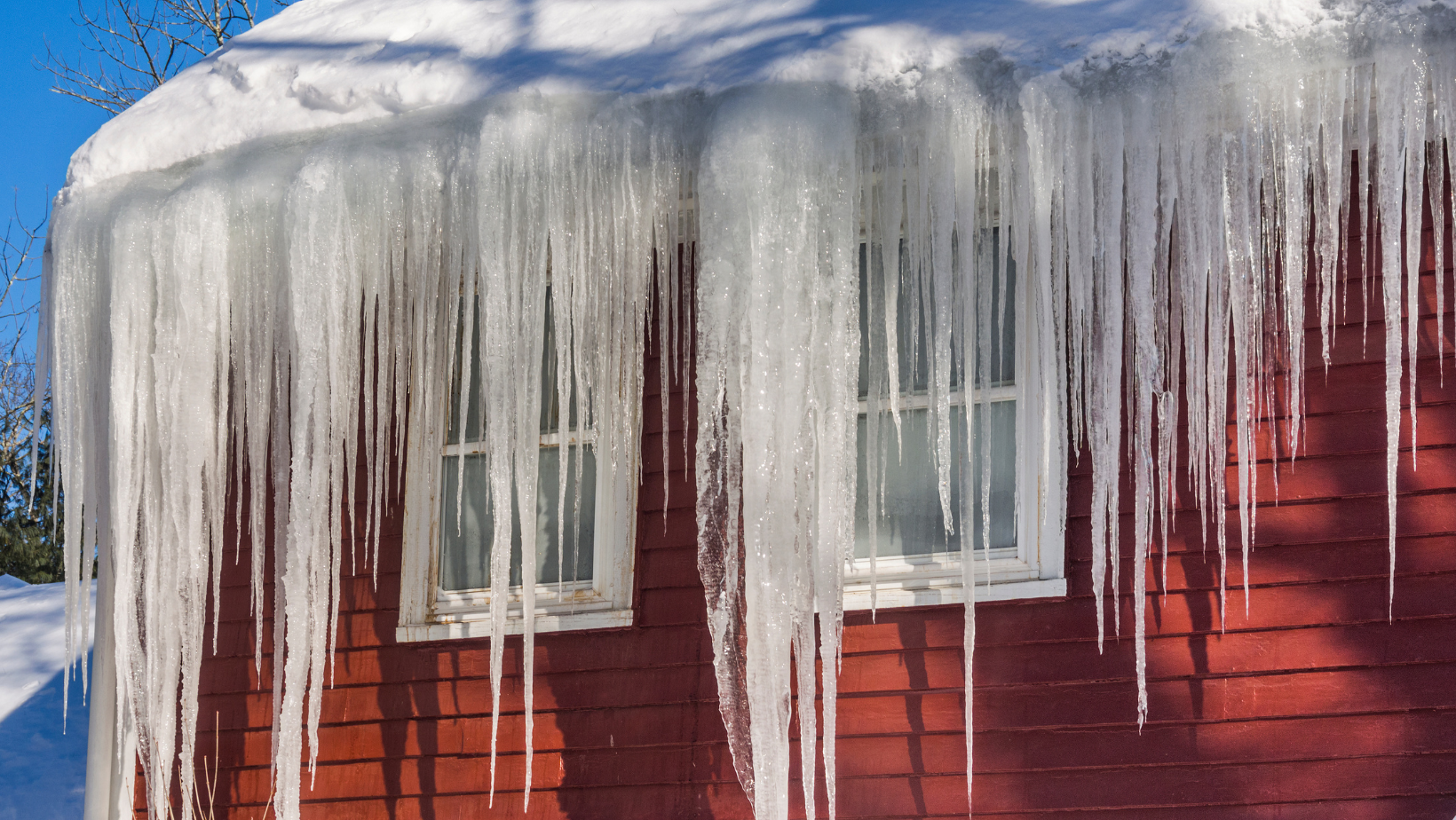
How Melted Snow Causes Basement Flooding And Water Damage
By: 911 Water Damage Experts
If you want to know how melted snow causes basement flooding and water damage, you’ve come to the right place.
First of all, it’s a nightmare when your basement floods.
Not only can it be difficult to deal manage, but it can also pose a threat to the structural integrity of the home.
Below we highlight how melted winter snow can lead to basement floods and ultimately unwanted stresses and expensive water damage problems.
Let’s get right into it.
Melting Snow And Flooded Basements: What Is The Connection Between The Two?
When winter snow and ice start melting, the nearby melt may cause an issue.
All the melted snow that turns into water can add to the existing bodies of water like ponds and rivers, which can affect nearby homes, parks, parking areas, streets, etc.
The quick movement of water once the temperatures rise can be a difficult thing to manage.
Naturally, at all stages, some structures can avoid this type of damage, but some are more prone to it. Let’s take a look at how you can prevent damage done by snow.
How To Prevent Snow From Flooding Your Basement
Taking preventative measures works. Here’s how to keep water away from the property:
-Keep a clean area around your home: the foundation is the thing you need to protect the most, so keeping the snow away from the foundation of the home is imperative. So, next time you are shovelling snow, keep this in mind. Push it away from the home and prevent it from stacking up somewhere near the foundation. This way, you have a better chance of preventing any flood from happening.
-Perform a regular sump pump test: if you want to prevent the water from filling up your basement, then you need to test your sump pump regularly.
-Check your foundation regularly too: check your foundation regularly and be thorough; make sure you are not missing any cracks. If the concrete is porous, the water will still run through it, but shutting all the cracks can prevent any large damage from happening.
-Clear all the snow from the house: whether it is the roof, the overhangs, or the ice dams, you need to clear the snow. The ice and snow melt and run off right above the foundation of the home. It can leak through your roof, and it can do some substantial damage along the way, so if you have a way to prevent this by clearing up some parts of the house, then you should do it.
-Put the downspouts away from the home: about 4-6 feet away from the home will do. This will prevent the water from getting below and damaging the home.
What Kind Of Water Damage Should You Look Out For?
If you start noticing some damage to your home, don’t avoid the issue. In this case, you need to take some action and make sure that you clean up the place immediately.
Restore all the bits that need restoring and prevent the flood from creating any future issues in the home. When it comes to the type of damage that can be done to your basement, there are two types, and they are:
-Structural water damage: you can notice that your home will become weaker and this will become visible in the walls. They might start crumbling, cracking, and even collapsing. The wet surface is the perfect breeding ground for mould too. If you notice some moisture damage or large cracks, then it is time to start thinking about assessing the damage before doing anything else.
-Growth of mould: the recommended course of action here is to catch it early. This is why, whenever you notice that there is some water or dampness in the basement, you need to act within the first 48 hours to prevent mould from forming. Any humid or wet area is the perfect place for mould, and if you don’t know how to take care of it yourself, then you can always contact a professional mould removal company!
How To Deal With Basement Flooding Form Melted Snow
Here are some tips that can help you get through the flooding in your basement:
-However small the damage may be, don’t ever ignore it.
-Call for help so you can protect yourself from mould.
-Contacting a professional to remove the water and clear the area is always the recommended way to go.
Safety Tips
Last but not least, once you start noticing some damage being done to your basement by melted snow, the first thing you should do is protect yourself and your family.
The snow can be dangerous and contaminated, so approaching the issue with the proper safety equipment is the right thing to do. If you don’t have any safety gear, then call a professional, they come with the right equipment and can professionally clear the area.
If you have any questions about our article “How Melted Snow Can Cause Basement Flooding” or need a water damage restoration company, feel free to call us at 1-833-WE-DRY-IT or chat with us in near real-time on our Facebook fan page.
Related Posts
Mould Removal Restoration Articles
5 Signs You Have Mould Growing In Your Walls
“Can I Remove Mould Myself?” Our Mould Removal Experts Have Answers
7 Must-Know Reasons Why You Should Get A Mould Inspection Before Buying A House
Does Mould Attract Bugs? Yes And Here’s What Kind And Why
How To Remove Mould From The Attic [Mould Prevention Tips Inside]
How Rain Causes Mould Growth-Prevention Tips Included
Must-Know Tips: How To Remove Mould In Your Basement
Fire Damage Restoration Articles
How to clean up after a house fire
Fire damage restoration checklist
Fire damage tips: 6 hazards property owners miss
How smoke from fires can negatively affect your health
What are the most common causes of house fires?
10 helpful smoke damage cleaning tips
Water Damage Restoration Articles
Water damage prevention tips from the most common problems we’ve seen
Top causes of water damage in commercial buildings and how to find them
Must-know water damage tips: What to do after your house floods
What does good water damage restoration look like?
DIY water damage restoration and the hidden dangers
How to choose the right water damage company
Flast floods: What to do before, during and after a flash flood
What to do when your attic leaks?
Related Water Damage Services
Fire damage restoration services
Water damage restoration services
Emergency cleanup services
Mould removal services
Weather damage services


